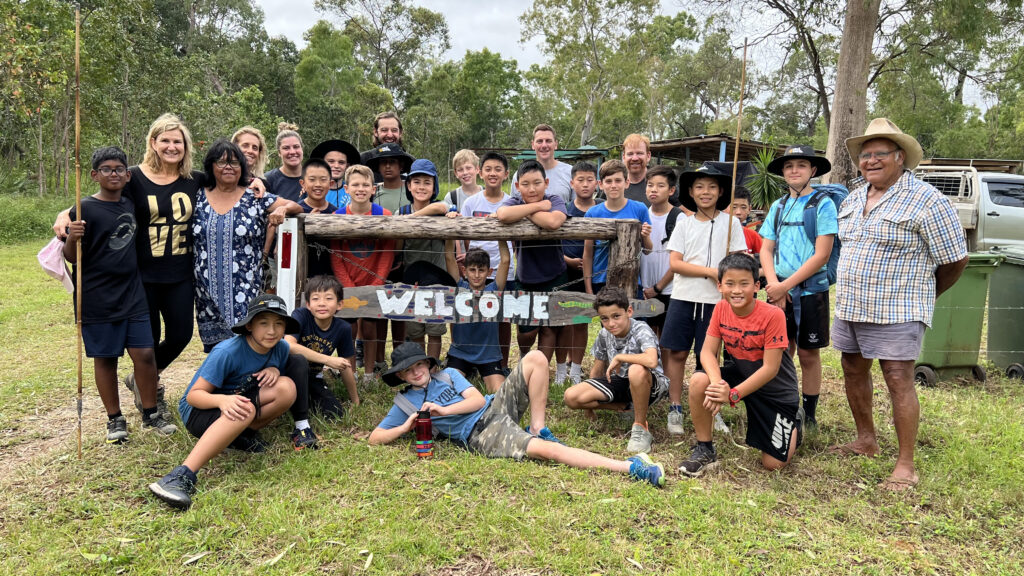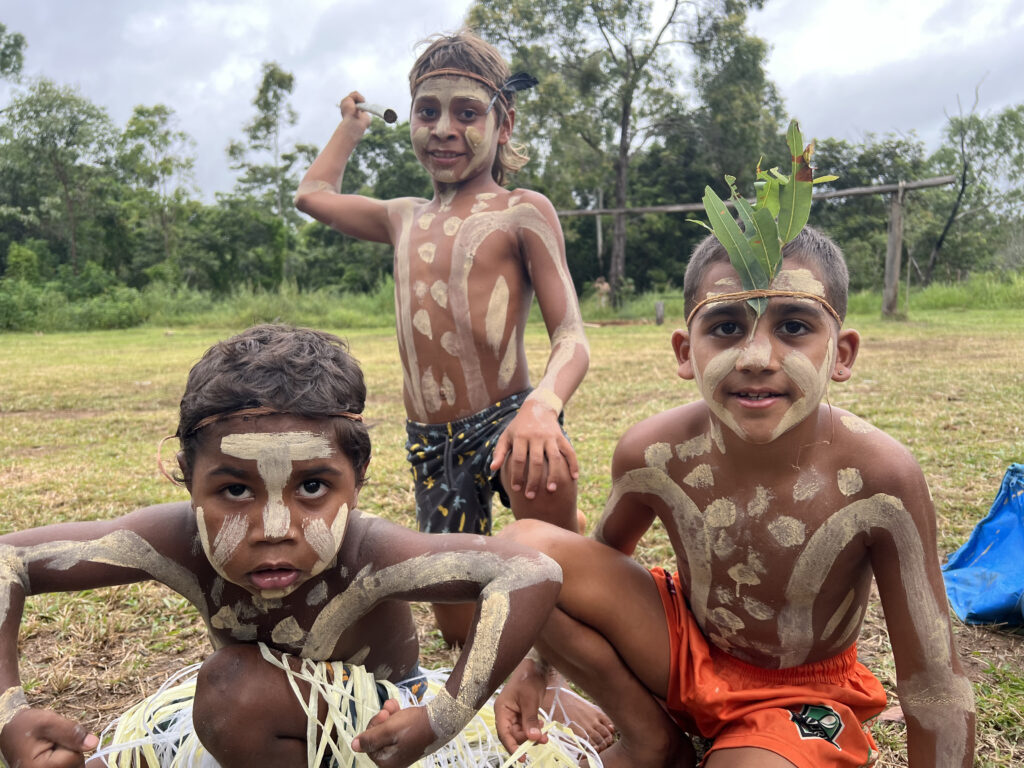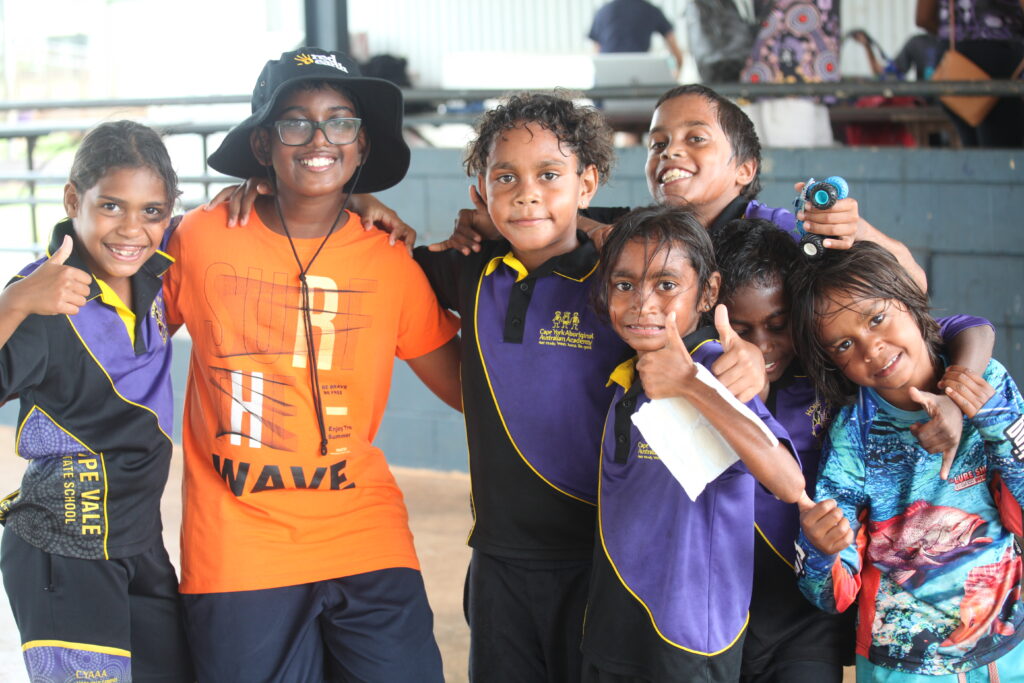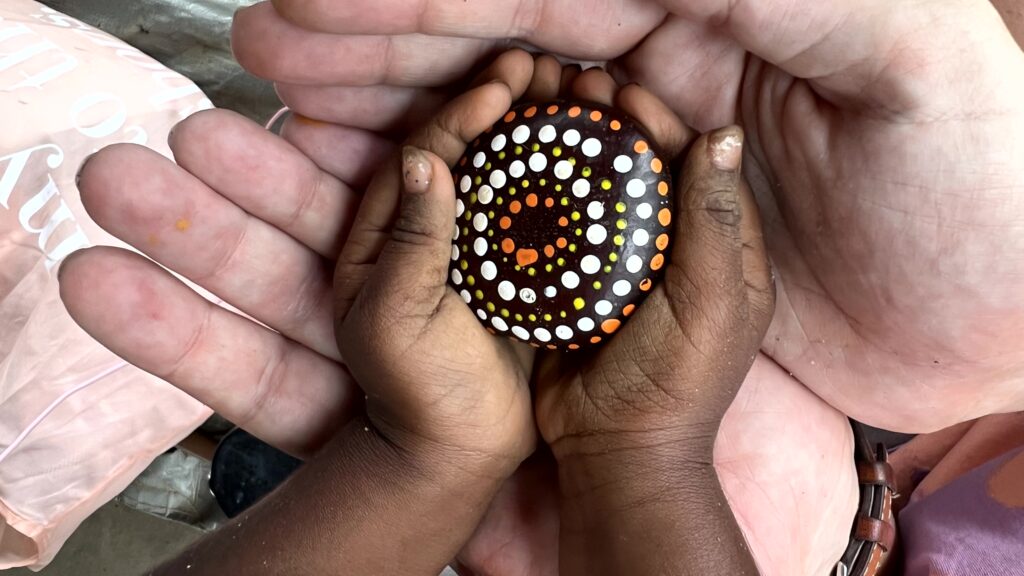Connection to Country – an outback adventure
Schooling in the voice of reconciliation
They ate green ants and other bush tucker, learned Aboriginal words, made spears, cooked damper, swam in waterholes and played footy; they made soap from tree ferns, caught rainwater in leaves, painted, wove baskets, visited the local school and heard stories from Aboriginal elders.
Of all the things Trinity Year 6 students did on their Cape York excursion, though, it may well be the stories that leave the deepest impressions.
They were no ordinary stories; they were accounts of the Stolen Generations, told in their own words.
“They were hard-to-hear, first-hand stories, told by traditional (land) owners who were separated from society and from their families,” said Head of the Preparatory School, Chris Wyatt, who led the excursion along with Head of the Junior School, Mark Dunn.
“I think those stories will mean more during Reconciliation Week this year. It will be the School community’s responsibility now to help them process what they absorbed.”
“The boys were very curious. All of them will be challenged to communicate their learning,” said Mr Dunn.
“I am confident they were able to take on important complex messages. It certainly did not wash over them.”
The 21 Year 6 students spent a week in April living in tents at Hope Vale, a township of 1900 Indigenous people 400 kms north of Cairns.
“Going somewhere that remote, for that length of time, with that age group, in that climate, with basic facilities, made it one of the hardest camps. But it was also one of the most rewarding and educational,” said Mr Dunn.
“It was eye-opening, it was challenging; it gave the boys, and the staff, a lot to think about.”
“The challenge added to the learning,” said Mr Wyatt.
“The nature of the learning was immersive, among the local people and the environment.
“The tour helps achieve some of the syllabus outcomes on Indigenous perspectives. But more importantly we feel a moral obligation to help the boys understand Indigenous culture, to think about how it’s similar to, and different from, ours.
“This will help them to be part of the voice of reconciliation, to speak with knowledge and insight rather than ignorance.”
Mr Dunn said the local community gave the Trinity visitors a warm welcome and made them feel at home.
“They were stunned and touched that we had come so far to listen and to get to know what their life is like.
“When we left, they cried.”
One final treat on the way home was a boat trip from Cairns out to the Great Barrier Reef.
And just to show that there’s a little link to Trinity just about anywhere you go, the marine biologist on the boat trip was Old Boy, Richard Blanch (1985).
This article originally appeared in our July Edition of Trinity News.
Request a physical copy of Trinity News or view our online digital bookshelf.






















